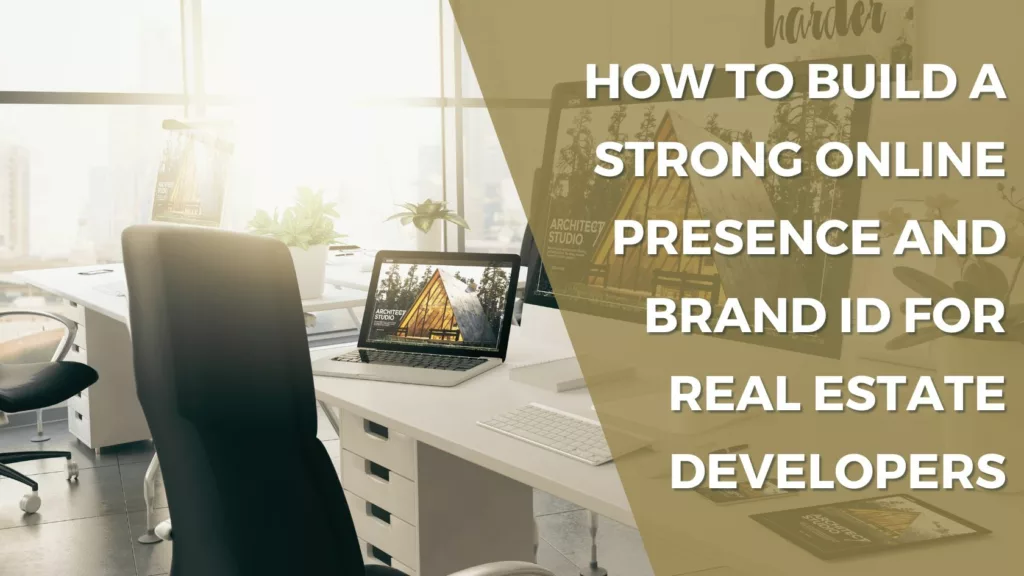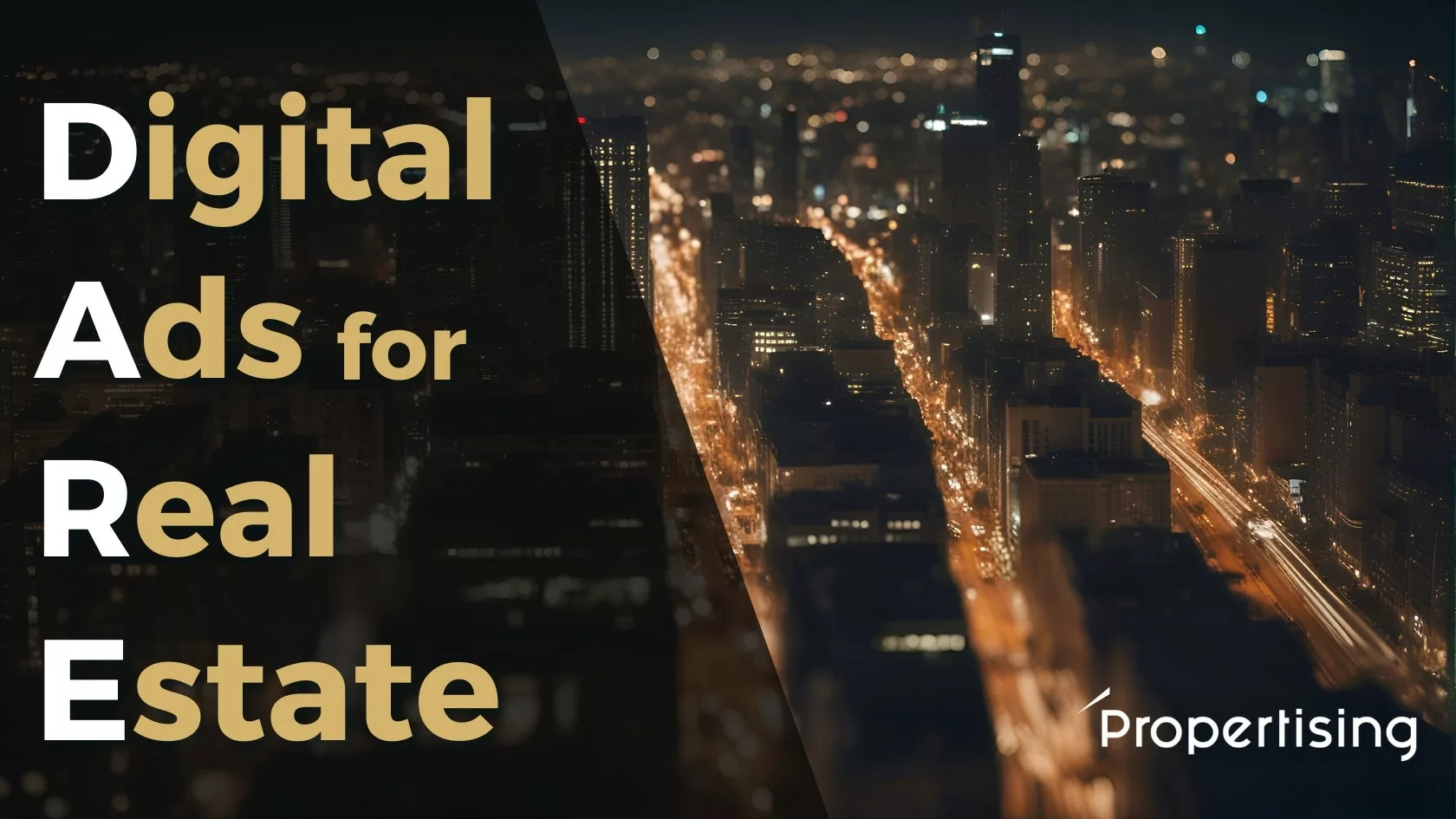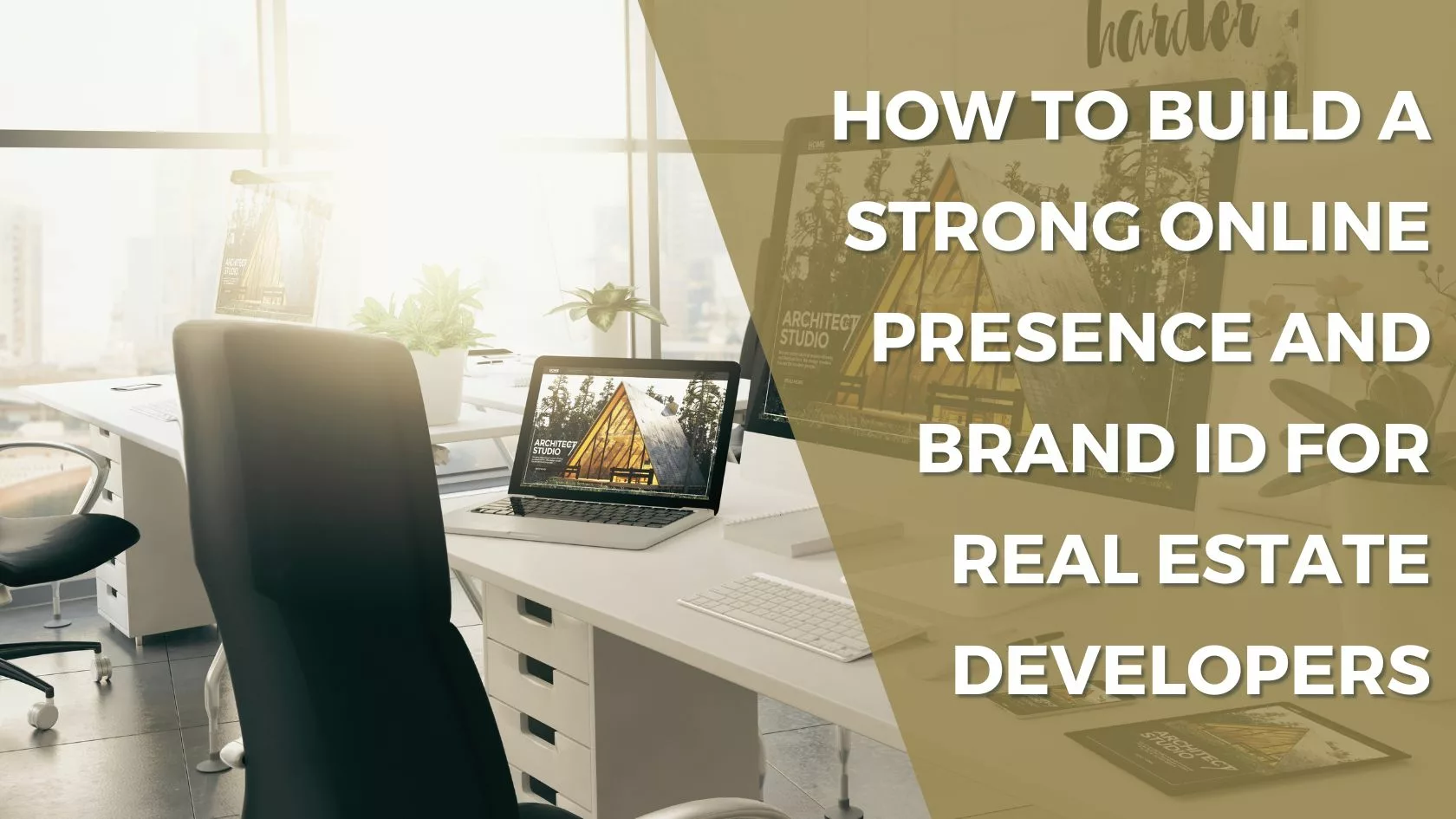 As a real estate developer, you know that your business depends on more than just building quality properties. You also need to build trust and credibility with your potential and existing customers, and differentiate yourself from the many competitors in the market. In other words, you need to build a strong online presence and brand identity.
As a real estate developer, you know that your business depends on more than just building quality properties. You also need to build trust and credibility with your potential and existing customers, and differentiate yourself from the many competitors in the market. In other words, you need to build a strong online presence and brand identity.
Online presence refers to how visible and accessible you are on the internet, while brand identity refers to how you communicate your values, personality, and unique selling proposition to your target audience. Together, they form the foundation of your digital marketing strategy, and can have a significant impact on your bottom line.
According to the latest reports by the National Association of Realtors, almost all (96%) home buyers use online tools and social media in their home search, and many of them consider online reputation as an important factor when choosing a real estate agent or developer.
These statistics show that having a strong online presence and brand identity for real estate is not optional, but essential for real estate developers who want to attract and retain customers, and grow their business in the digital age. But how can you achieve that? What are the key elements of online presence and brand identity, and how can you implement them effectively?
In this article, we will answer these questions and provide you with some best practices, tips, and tools to help you create a professional, consistent, and engaging online presence and brand identity for your real estate development business.
Key Elements of Online Presence and Brand Identity for Real Estate
 Before we dive into the details, let’s first define what online presence and brand identity are, and how they are related.
Before we dive into the details, let’s first define what online presence and brand identity are, and how they are related.
Online presence is the sum of all the online channels and platforms where your business can be found, such as your website, social media accounts, blogs, podcasts, videos, online directories, reviews, etc. It also includes how you optimize these channels and platforms for search engines, mobile devices, and user experience.
Brand identity is the way you present your business to your target audience, and how you want them to perceive you. It includes your name, logo, slogan, colors, fonts, images, tone of voice, values, personality, and unique selling proposition. It also includes how you deliver on your promises and expectations, and how you interact with your customers and stakeholders.
Online presence and brand identity are closely related, because they both influence how your business is seen and remembered online. A strong online presence can help you increase your brand awareness, reach, and authority, while a strong brand identity can help you build trust, loyalty, and advocacy among your customers.
To create a strong online presence and brand identity for your real estate development business, you need to focus on four key elements: website, social media, content marketing, and reputation management. Let’s look at each of them in more detail.
Website
 Your website is the most important element of your online presence and brand identity, because it is the first impression that most of your customers will have of your business. It is also the place where you can showcase your properties, services, testimonials, awards, and achievements, and where you can generate leads and conversions.
Your website is the most important element of your online presence and brand identity, because it is the first impression that most of your customers will have of your business. It is also the place where you can showcase your properties, services, testimonials, awards, and achievements, and where you can generate leads and conversions.
To create a strong website for your real estate development business, you need to follow these best practices:
- Choose a domain name that is easy to remember, spell, and pronounce, and that reflects your brand name and identity.
- Design a logo that is simple, memorable, and distinctive, and that conveys your brand personality and values.
- Use a color scheme that is consistent with your brand identity, and that creates contrast and harmony on your website.
- Use fonts that are legible, attractive, and appropriate for your brand tone and voice.
- Use high-quality images and videos that showcase your properties, projects, and team, and that appeal to your target audience’s emotions and aspirations.
- Use clear and compelling headlines, subheadings, and copy that highlight your unique selling proposition, benefits, and value proposition, that persuade your visitors to take action.
- Use a responsive design that adapts to different screen sizes and devices, that provides a fast and smooth user experience.
- Use a simple and intuitive navigation that helps your visitors find what they are looking for quickly and easily.
- Use a clear and prominent call to action that guides your visitors to the next step in their journey, such as contacting you, requesting a quote, booking a consultation, etc.
- Use social media icons and links that encourage your visitors to follow you on other platforms, and to share your content with their networks.
- Use testimonials, reviews, ratings, awards, certifications, logos of partners or clients, etc. that demonstrate your credibility, authority, and social proof.
- Use a blog or a news section that provides valuable and relevant information to your audience, such as market trends, industry insights, tips, advice, case studies, etc. This can help you establish yourself as an expert in your field, attract organic traffic from search engines, and generate leads and conversions.
- Use analytics tools such as Google Analytics or Hotjar to track and measure your website performance, such as traffic sources, bounce rate, conversion rate, etc. This can help you identify what works well and what needs improvement on your website.
Social Media
 Social media is another essential element of your online presence and brand identity, because it is where you can connect and engage with your current and potential customers, and where you can amplify your brand awareness and reach. It is also where you can showcase your brand personality, values, and culture, and where you can build trust, loyalty, and advocacy among your followers.
Social media is another essential element of your online presence and brand identity, because it is where you can connect and engage with your current and potential customers, and where you can amplify your brand awareness and reach. It is also where you can showcase your brand personality, values, and culture, and where you can build trust, loyalty, and advocacy among your followers.
To create a strong social media presence and brand identity for your real estate development business, you need to follow these best practices:
- Choose the right social media platforms for your business, based on your goals, audience, and resources. You don’t need to be on every platform, but you need to be on the ones that matter to your customers and prospects. Some of the most popular platforms for real estate developers are Facebook, Instagram, LinkedIn, Twitter, YouTube, Pinterest, etc.
- Create a consistent and professional profile on each platform, using your brand name, logo, color scheme, fonts, images, videos, bio, etc. Make sure to link to your website and other social media accounts on each profile.
- Post relevant and engaging content on a regular basis, such as property photos and videos, project updates, behind-the-scenes stories, customer testimonials, industry news, tips and advice, etc. Use a mix of formats, such as text, images, videos, live streams, stories, reels, etc. Use hashtags, keywords, tags, mentions, etc. to increase your visibility and reach.
- Interact with your followers and other users on each platform, such as liking, commenting, sharing, replying, etc. This can help you build relationships and trust with your audience, and increase your engagement and retention rates.
- Use social media ads or sponsored posts to promote your properties, services, offers, events, etc. to a targeted audience based on their location, demographics, interests, behaviors, etc. This can help you generate more traffic, leads, and conversions for your business.
- Use analytics tools such as Facebook Insights to track and measure your social media performance, such as followers growth rate, engagement rate, reach, impressions, clicks, conversions, etc. This can help you identify what works well and what needs improvement on your social media strategy.
Content Marketing
 Content marketing is another key element of your online presence and brand identity, because it is where you can provide valuable and relevant information to your audience, and where you can demonstrate your expertise, authority, and thought leadership in your industry. It is also where you can educate, inform, entertain, and inspire your audience, and where you can guide them through the different stages of their buyer’s journey.
Content marketing is another key element of your online presence and brand identity, because it is where you can provide valuable and relevant information to your audience, and where you can demonstrate your expertise, authority, and thought leadership in your industry. It is also where you can educate, inform, entertain, and inspire your audience, and where you can guide them through the different stages of their buyer’s journey.
To create a strong content marketing strategy for your real estate development business:
- Define your content marketing goals, such as increasing brand awareness, generating leads, nurturing prospects, converting customers, retaining clients, etc.
- Define your target audience, such as their demographics, psychographics, pain points, needs, wants, preferences, etc. Use buyer personas to create a detailed profile of your ideal customer.
- Define your content marketing themes, topics, and keywords, based on your audience’s interests, challenges, questions, etc. Use keyword research tools such as Google Keyword Planner, SEMrush or even better RankMath to find relevant and popular keywords for your industry and niche.
- Define your content marketing formats, types, and channels, based on your audience’s behavior, preferences, and devices. Use a variety of formats and types, such as blogs, podcasts, videos, ebooks, whitepapers, webinars, infographics, case studies, etc. Use a variety of channels, such as your website, social media, email, etc.
- Create a content marketing calendar or plan that outlines what content you will create, when you will create it, who will create it, how you will distribute it, and how you will measure it. Use tools such as Google Calendar or Trello to organize and manage your content marketing activities.
- Create high-quality and engaging content that provides value and relevance to your audience, that showcases your brand identity and personality, that addresses your audience’s pain points and needs, that offers solutions and benefits, that includes a clear and compelling call to action, and that follows SEO best practices.
- Distribute and promote your content across your online channels and platforms, such as your website, social media, email, etc. Use tools such as Buffer or Hootsuite to schedule and automate your content distribution and promotion.
- Measure and analyze your content marketing performance, such as traffic, engagement, leads, conversions, retention, etc. Use tools such as Google Analytics or HubSpot to track and evaluate your content marketing results.
Reputation Management
 Reputation management is the last but not least element of your online presence and brand identity, because it is where you can monitor and manage what others are saying about your business online, and where you can influence and improve your online reputation. It is also where you can handle negative feedback, reviews, or comments, and where you can turn unhappy customers into happy ones.
Reputation management is the last but not least element of your online presence and brand identity, because it is where you can monitor and manage what others are saying about your business online, and where you can influence and improve your online reputation. It is also where you can handle negative feedback, reviews, or comments, and where you can turn unhappy customers into happy ones.
To create a strong reputation management strategy for your real estate development business, you need to follow these best practices:
- Monitor your online reputation on a regular basis, using tools such as Google Alerts or Mention to track and receive notifications whenever your brand name, keywords, or properties are mentioned online.
- Respond to positive feedback, reviews, or comments promptly and politely, using tools such as Facebook Messenger or WhatsApp to communicate with your customers and prospects. Thank them for their kind words, show appreciation for their business, and encourage them to refer you to their friends and family.
- Respond to negative feedback, reviews, or comments professionally and empathetically, using tools such as Trustpilot or Yelp to manage your online reviews. Apologize for any inconvenience or dissatisfaction, acknowledge their concerns, offer a solution or compensation, and invite them to contact you offline to resolve the issue.
- Solicit feedback, reviews, or testimonials from your satisfied customers, using tools such as SurveyMonkey, Typeform, or Propertising’s own solution to collect feedback from your customers. Ask them to rate their experience with your business, to share their opinions and suggestions, and to leave a review or testimonial on your website or social media.
- Showcase your positive feedback, reviews, or testimonials on your online channels and platforms, such as your website, social media, email, etc. Use tools such as Testimonial Monkey or Boast to display and manage your customer testimonials. This can help you increase your social proof, credibility, and trustworthiness.
 In conclusion, creating a strong online presence and brand identity for your real estate development business is not an easy task, but it is a worthwhile investment that can help you stand out from your competitors, attract and retain more customers, and grow your business.
In conclusion, creating a strong online presence and brand identity for your real estate development business is not an easy task, but it is a worthwhile investment that can help you stand out from your competitors, attract and retain more customers, and grow your business.
By focusing on the four key elements of website, social media, content marketing, and reputation management, you can build a solid foundation for your online success.
Remember to always keep your audience in mind, and to provide value and relevance to them through your online channels and platforms. And… don’t forget to measure and analyze your online performance, and to optimize and improve your online strategy accordingly.

This Article was written by Andreas.
Andreas is a Co-Founder and CTO of Propertising. He has a proven track record of delivering complicated Information Technology projects for major media, public sector, and private sector clients, with over 30 years of experience. He also has a combined 12 years of expertise in Advertising and Marketing since his early career. He is currently focused on creating a Marketing Community that helps Small to Medium Real Estate Businesses grow into great companies. In his spare time, he likes to travel around the world and to read or watch movies – he is a nerd at heart.




